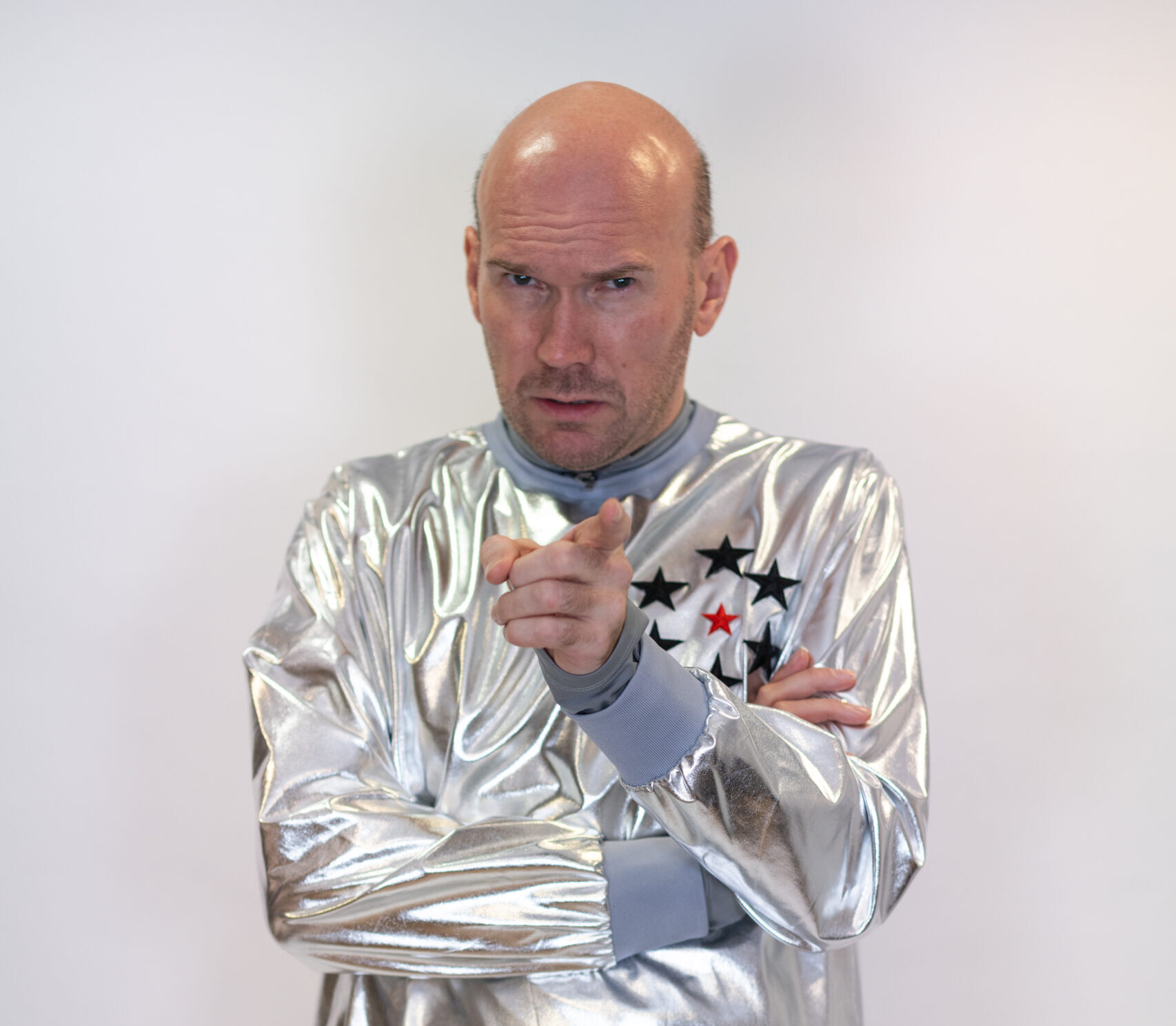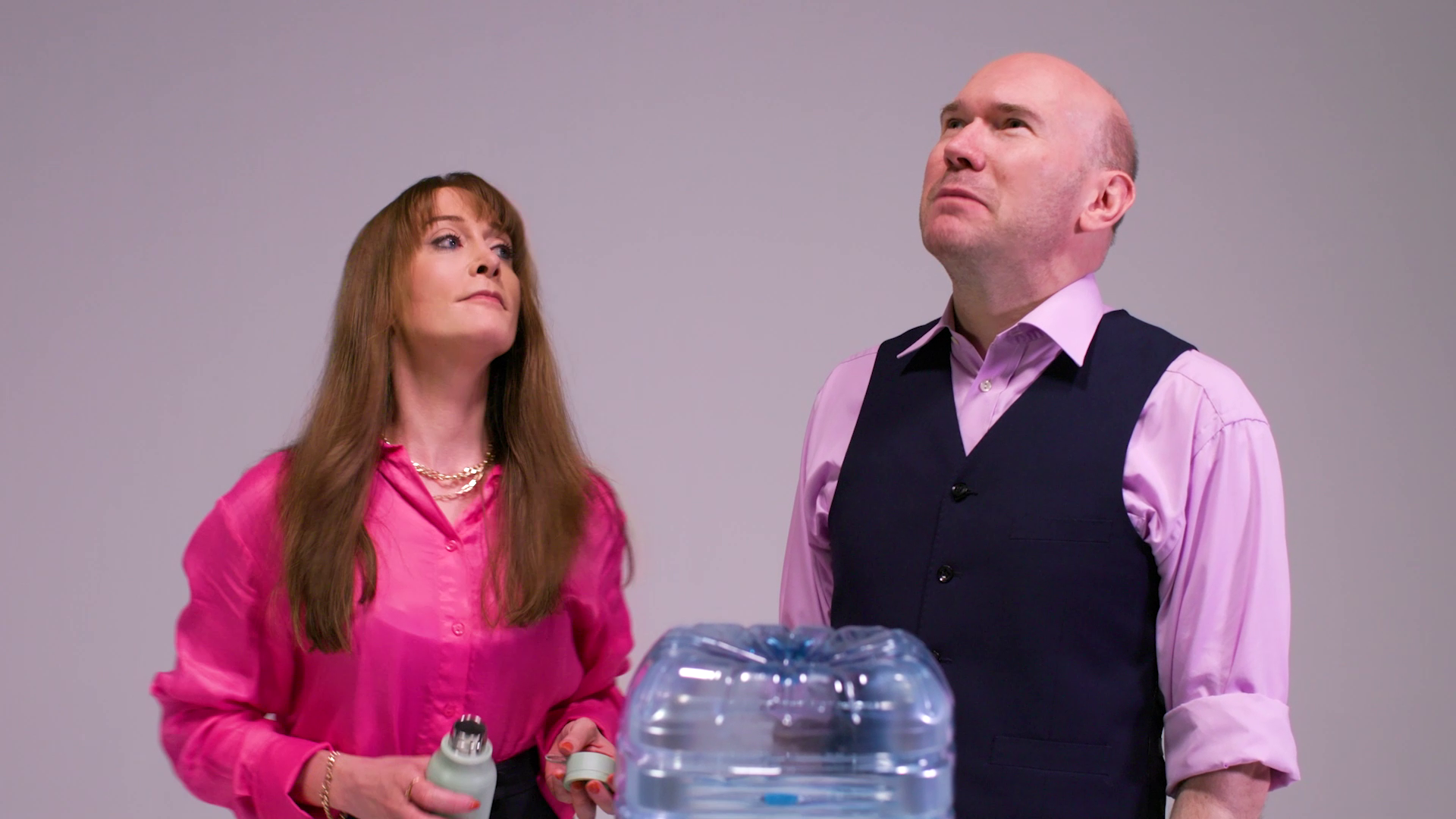For 40 years now, Video Arts has used the classic ‘wrong way, right way’ lesson structure. Scenes showing the ‘wrong way’ to behave provoke discussion, enabling learners to draw out the lessons for themselves. Humour serves to engage an audience. However, laughing at a scenario also encourages people to ‘drop their guard’, making them more willing to accept that they too act to some extent like the characters depicted. The learning lessons then get reinforced by showing the ‘right way’ to behave.
Now, a new series of short, comedy programmes has taken this established formula to another level, prompting a debate about the use of hard-hitting training content.
Called Cutting Edge Communication, the new series covers 36 short programmes produced by Eve Ash, a renowned motivational psychologist and author whose 500 training films have won 140 international awards for creativity and excellence. Her latest series tackles sensitive subjects such as surviving team conflicts, breaking bullying, handling tricky appraisals and ensuring a respectful workplace. Designed as session starters, each programme lasts 5-9 minutes.
All 36 programmes are set in one fictional workplace and feature the same set of characters. This gives them the contemporary feel of a fast-paced, character-driven, TV-style comedy. Much of the humour centres on Carol, an autocratic manager who doesn’t realise the impact that her direct and confrontational behaviour has on her colleagues. Nearly everything she does, in her rude and bullying style, constitutes the ‘wrong way’ of doing things.
Eve Ash has deliberately made these programmes very hard-hitting. She argues that there is a psychological rationale behind her approach, as the programmes are designed to engage a media-saturated generation that feels uninspired, unchallenged and bored by traditional training. Her aim was to create programmes that people will want to talk about – and characters that people can make reference to if they encounter similar behaviour in their own workplace.
The series certainly presents a very different approach. Each programme confronts a delicate issue and delivers important lessons in human interaction – in a way you’ll never forget! However, focus groups have shown that people either love or hate the content. Some consider Carol’s exaggerated approach to be funny and engaging; others find her shocking and offensive.
The point here is that these programmes provide trainers with yet another option. Trainers will always need to choose the best way to deliver a message to a particular audience. Hard-hitting training can be a refreshing way to stimulate a response but the skill of the trainer is to judge what content will work best for the audience in question. The aim should be to create memorable learning, not necessarily to run sessions that have people leaving the room in disgust!
Eve Ash’s new programmes may not be for everyone. However, for some audiences, the shock tactic they employ may have exactly the right impact. Laughing, sharing their outrage and discussing the behaviours on screen can bring an audience together. By using the strong feelings generated, skilled trainers can construct a shared view not only of what constitutes acceptable behaviour in the workplace but also of how sensitive issues should best be resolved in teams or in organisations.
In terms of learning content, one man’s meat will always be another’s poison. However, as recent research by Video Arts shows that soft skills will be an important priority for trainers in the coming year, having another option up your sleeve, that could suit a certain audience, may well be worth considering.



